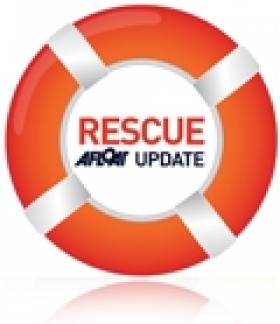Displaying items by tag: PLB
Black Friday Savings on New Award-Winning Ocean Signal RescueMe PLB3 With CH Marine
There has often been a dilemma as to which type of personal locator beacon (PLB) is best for mariners — the choice being either the 406Mk satellite PLB or the AIS beacon.
Now with the all-new, DAME Design Award winning Ocean Signal RescueMe PLB3, both systems have been combined into one, making it the ultimate PLB for all users.
Add return link sending (RLS), near-field communication (NFC) and controllability via a smartphone app, and the RescueMe PLB3 is a game-changer in personal safety onboard, whether for inshore, coastal or trans-ocean use.
CH Marine are taking pre-orders now for delivery by the end of December at a special limited Black Friday deal price of €499 — a huge saving of 25% on the RRP of €670.
ComReg launches Personal Locator Beacon (PLB) Registration Website
Personal Locator Beacons, or PLBs, are portable radio transmitters, which aid the Search & Rescue (SAR) emergency services in the detection and location of persons in distress. These devices operate in a similar manner to Emergency Position Indicating Radio Beacon (EPIRBs) onboard vessels and Emergency Locator Transmitters (ELTs) onboard aircraft, but are unique in that they for personal use and are not registered to a particular vessel or aircraft.
ELTs and EPIRBs have been in operation for several years are proven technologies, which have resulted in many successful search and rescues missions since their inception. More recently technological advances have enabled the construction of light-weight, hand-portable distress transmitters and hence the relatively recent emergence of PLBs onto the market.
In order to maximise the effectiveness of PLB usage, each PLB should be registered so that owner details as well as location details can be communicated to the emergency services which in many cases assists in speeding up rescue operations.
PLB owners can now register their PLB in Ireland using ComReg's new web portal. For more information on how to register your PLB please go to www. Comreg.ie or contact [email protected] or phone 01 804 9600.





























































